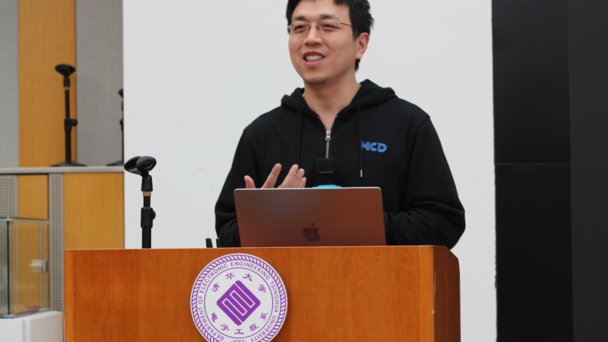TMTPost -- From tech giants like Huawei Technologies Co., Ltd. to startups, Chinese firms are hoarding high bandwidth memory (HBM) semiconductors from South Korean supplier Samsung Electronics to weather potential new U.S. export controls, according to a recent report.

Credit:Xinhua News Agency
China accounts for around 30% of Samsung’s HBM chip revenue in the first half of this year as Chinese companies are doubling down purchases since early of the year, Reuters quoted sources. The strong demand for HBM semiconductors resulted from the global AI boom that fueled Chinese firms’ enthusiasm to catch up the big trends across various sectors. HBM chips are critical components for developing artificial intelligence (AI) chipsets that empower generative AI work. Chinese chip demand has been largely focused on the HBM2E model, which is two generations behind the most advanced version HBM3E, said the Reuters’ sources.
The Reuters report didn’t specify how many Chinese buyers that Samsung had or the size or value of their stockfiled HBM chips. It noted a wide range of firms including WeChat owner Tencent Holdings Ltd. have been buying these advanced semiconductors, adding that chip designing startup Haawking recently placed orders from Samsung. Huawei was reported to use Samsung HBM2E chips to make its Ascend AI chips.
There only three major chipmakers producing HBM chips --U.S.-based Micron Technology, Samsung and its domestic peer SK Hynix. The stockfile of high-end Samnsung chips can be deemed as Chinese companies’ preparation for further tech restrictions imposed by the United States.
Bloomberg reported last month the Biden administration has told allies that it’s considering using the most severe trade restrictions available if companies such as Japanese firm Tokyo Electron Ltd. and Netherland-based ASML Holding NV continue giving the country access to advanced semiconductor technology. The U.S. was reported to consider whether to impose the Foreign Direct Product Rule, or FDPR, which allows the country to impose controls on foreign-made products that use even the tiniest amount of American technology. Seeking leverage with allies, the U.S. government is presenting the idea to officials in Tokyo and the Hague as an increasingly likely outcome if the countries don’t tighten their own China measures, the report quoted people familiar with the matter.
The FDPR allows the U.S. government to block the sale of products made using American technology, even if produced in a foreign country. This rule has been employed to restrict chip sales to Huawei, which has since adapted and now plays a central role in China's advanced chip production.
Another aspect of the new export control package will lower the U.S. content threshold that triggers foreign items' subjection to U.S. control, closing a loophole in the FDPR. For instance, equipment could fall under export controls simply because it incorporates a chip made with U.S. technology.
The U.S. government plans to roll out an export control package this month to expand exports of equipment from some foreign countries to Chinese chipmakers, Reuters reported late July. The package was reported to lay out parameters for restricting HBM chip access. The new rule will impact exports to China from countries and regions including Taiwan, Israel, Singapore and Malaysia, but shipments from allies that export key chipmaking equipments, including Japan, the Netherlands and South Korea, will be excluded, according to the report.
While not commenting on the report, a spokesperson at the U.S. Department of Commerce said in a statement that the department is continually assessing the evolving threat environment and updating its export controls, as necessary, to protect U.S. national security and safeguard its technological ecosystem. The person added the U.S. remains committed to working closely with its allies.
















